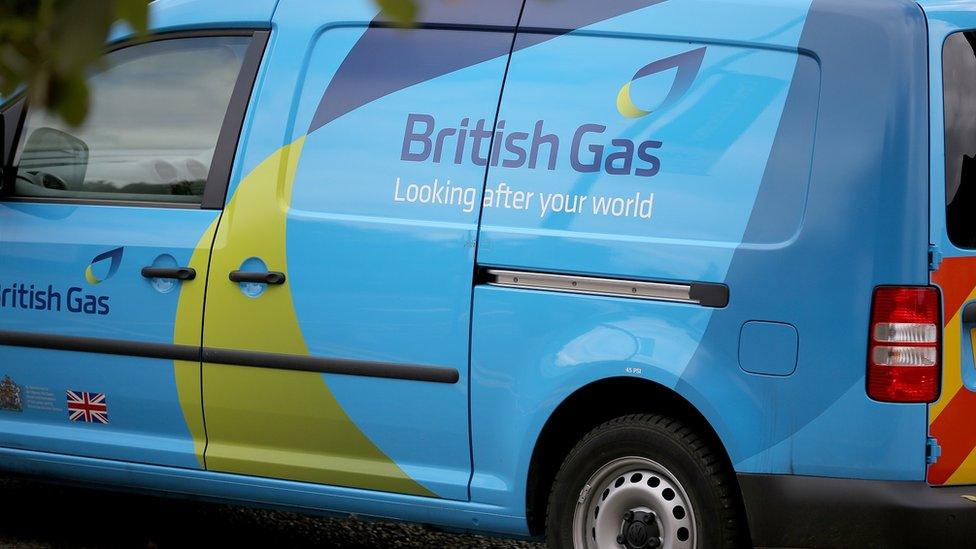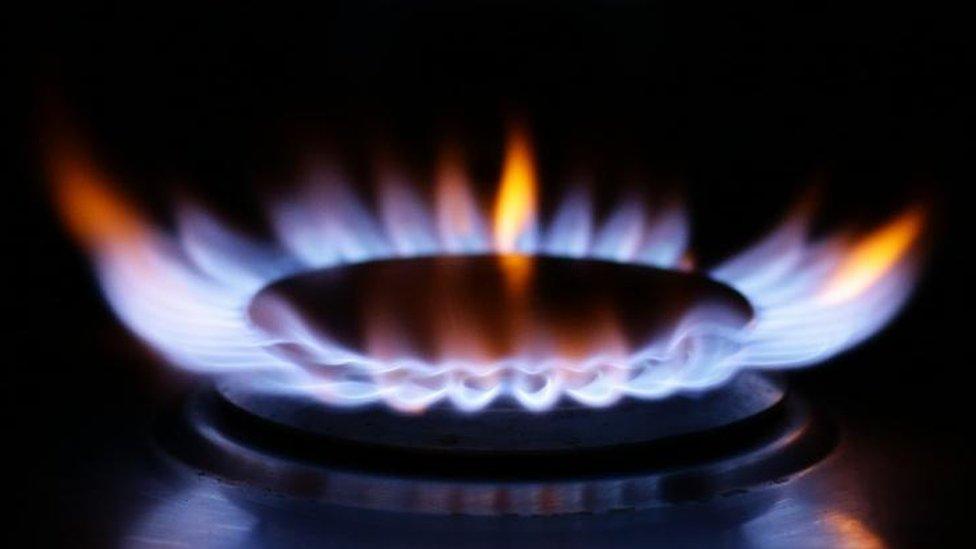British Gas price rise unjustified, says government
- Published
- comments

A 5.5%, or £60 a year, rise in energy prices for British Gas customers on default deals has been branded as "unjustified" by the government.
The company, the UK's largest energy supplier, said that 4.1 million of its customers would be affected.
The increase will take effect from 29 May and follows its 12.5% rise in electricity prices last September.
British Gas argued that it was raising prices owing to factors beyond its control, such as wholesale costs.
The 5.5% increase, which applies to both gas and electricity, will see the average annual standard variable dual-fuel bill for British Gas customers go up to £1,161.
Energy minister Claire Perry said: "We are disappointed by British Gas's announcement of an unjustified price rise in its default tariff when customers are already paying more than they need to."
Energy regulator Ofgem described the increase as "unwelcome" and encouraged householders to shop around.
Those who pay their bill by cash or cheque will see an average annual price rise of nearly £85. Customers in different areas of the country face different price rises. Those in the West Midlands and southern Scotland face the biggest increase.

'I'm switching'
British Gas customer Mike Gibson, from Newcastle, said: "I am a loyal British Gas customer. I've been with them as long as I can remember, over 20 years.
"I am leaving British Gas. This price rise is the final straw. This increase will have a real impact on me financially so I will look for a cheaper option.
"I am one of those people who always thinks that I should switch provider, but I never do. I get a bill and decide I am going to switch, but I forget about it in a few days.
"This is a big enough hike that I am definitely going to switch this time. I think I will be able to find a provider that is about £200 a year cheaper, so for me it is really worth it."

'Pressure on bills'
British Gas said it had to lift prices following a rise in the cost of producing energy - including wholesale costs.
The company pointed to a similar decision by energy regulator Ofgem, which recently blamed wholesale costs for the rise in the default tariff for those with prepayment meters.
Mark Hodges, chief executive of Centrica Consumer, of which British Gas is a part, said: "We fully understand that any price increase adds extra pressure on customers' household bills. This increase we are announcing today is reflective of the costs we are seeing which are beyond our control."
He also blamed the extra charges it faced as part of government policy, such as the introduction of smart meters and emissions targets.
"Government policies, intended to transform the energy system, are important but they are putting pressure on customers' bills. We believe government should level the playing field so the customers of all suppliers pay a fair share of energy policy costs," Mr Hodges said.
"We continue to encourage government to consider moving these costs out of energy bills altogether and into general taxation."

Price comparison websites, which make money from customers switching suppliers, are predicting that other energy companies will follow the British Gas price rise.
Stephen Murray, from Moneysupermarket, said: "No doubt we will see speculation on which supplier might follow and how consumers need protection from rip-off prices."
Ed Molyneux, head of research for switching service Look After My Bills, said: "The data is clear, there is simply no justification for price hikes now, especially when British Gas put their prices up last year. Costs are still under the peak that triggered the first round price rises last year."
A spokesman for regulator Ofgem said: "Ofgem is working with the government to protect all consumers on poor value default tariffs, including standard variable tariffs, from being overcharged by suppliers by introducing a default tariff price cap.
"In the meantime, we encourage British Gas customers affected by the price rise announced today to see if they can save money by switching to a better deal as savings of up to almost £300 are available."
'Scrapping' standard variable tariffs
Energy firms have faced pressure from politicians over pricing, and the use of standard variable tariffs which have been deemed poor value for consumers.
British Gas has scrapped standard variable tariffs for new customers - following similar moves by E.On and Scottish Power.
Those British Gas customers already on fixed-term contracts who fail to opt for a replacement when the deal ends are now put on a separate default tariff.
This so-called Temporary Tariff will also rise by £60 on 29 May. At an average of £1,136 a year, it is slightly cheaper than the standard variable tariff used by existing customers.
Centrica's Mr Hodges said: "We also continue to call on Ofgem to end the standard variable tariff across the market which would encourage customers to proactively seek the best energy deal for them."
Although it is not specifically raising energy prices, E.On recently announced changes to how it bills customers which will see the average standard variable tariff rate rise by £22 a year from 19 April.
- Published7 February 2018

- Published20 November 2017
